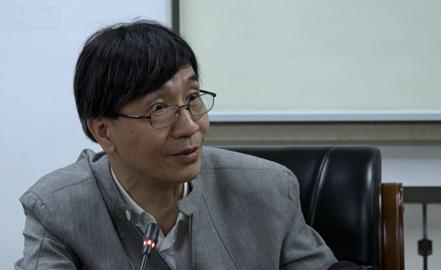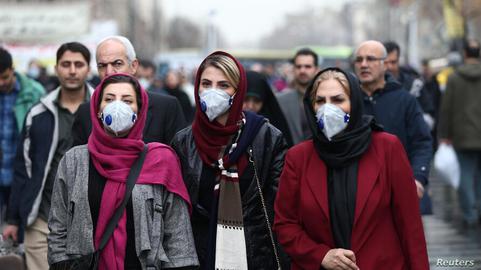Jianli Yang, a mathematician and human rights activist, survived China's Tiananmen Massacre in 1989, after which he left China for the United States. He returned in 2002 and was jailed between 2002 and 2007 for supporting the country's labor movement. He was intermittently held in solitary confinement for a total of 15 months – as detailed in a previous IranWire interview – and returned to the US after his release.
In a weekly series for IranWire, Jianli Yang analyses Chinese disinformation around the origin of coronavirus and its handling to date, and other recent affairs.
Shocking new claims by Hong Kong’s leading disease control expert about a potential “cover-up” of coronavirus by local officials in China were broadcast by the BBC this week. In fact, as our recently-published study shows, the BBC could have gone a lot further.
Professor Yuen Kwok-Yung is the chair of infectious diseases at the Department of Microbiology of the University of Hong Kong. He visited Wuhan in January to help diagnose cases in what was then the epicenter of China’s outbreak. In an interview for the BBC’s investigative series Panorama, he told reporters that he had warned health officials of suspected potential human-to-human transmission of SARS-CoV-2 as early as January 12.
Two days later the World Health Organization infamously quoted Chinese authorities as saying that no such evidence existed, and this guidance didn’t change until January 20.
Worse, in his interview for the BBC’s investigative series Panorama, Professor Yuen accused the authorities of destroying evidence. "When we went to the Huanan supermarket, of course, there was nothing to see because the market was clean already. So, you may say that the crime scene is already disturbed; because the supermarket was cleared we cannot identify the animal host which is giving the virus to humans.
"I do suspect that they have been doing some cover-up locally at Wuhan. The local officials who are supposed to immediately relay the information has not allowed this to be done as readily as it should.”
The interview was widely publicised in the British press on July 27. Shortly before the programme aired and on the same day that Professor Yuen’s words were reported online, the BBC’s clip of the interview was then removed from YouTube, causing consternation among social media users and fears for Yuen’s safety. But his testimony was then broadcast in full in the Panorama programme on August 3.
It is not clear whether Yuen requested the video be removed in fear of the Chinese Communist Party’s ire, or whether the BBC took it down so as not to spoil the feature-length documentary it had planned for Monday.
Yuen has already caused controversy in recent months. In March he and a microbiologist colleague, David Lung, co-wrote an op-ed in the Chinese newspaper Ming Pao entitled The Pandemic Originated From Wuhan and the Lessons from 17 Years Ago [the SARS outbreak] Have Been Forgotten. The authors said it was acceptable to call the virus the “Wuhan virus” due to where it originated, slammed the culture of wild meat consumption in mainland China and the dangers of wet markets, and called on people to stop sharing the rumor that the virus originated in the US. Both came under political pressure as a consequence and later retracted the article, apologizing for any inappropriate wording.
Timeline of Hospital Admissions Confirms Whistleblower's Fears
On July 1, my organization, Citizen Power Initiatives for China, launched a 100,000-Chinese character research report entitled China and the Pandemic. By carefully analyzing all the data and first-hand Chinese sources available, we have been able to produce a day-by-day, blow-by-blow account of the outbreak.
China first discovered the genome sequence of the virus on December 27, 2019. On January 1, 2020, the authorities demanded the destruction of the lab samples and a halt to testing for the virus.
The Chinese authorities were aware of human to human transmission cases much earlier than Professor Yuen reveled. On January 24, 2020, the international medical journal The Lancet published a research report stating that the first 2019 novel coronavirus (2019-nCoV) patient had an onset of illness on December 1, 2019, and that this patient had no history of exposure to the Huanan seafood market mentioned by Professor Yuen.
The study was co-authored by eminent Chinese physicians and researchers and at hospitals across mainland China, including the China-Japan Friendship Hospital, Wuhan’s Jinyintan and Tongji Hospitals and Beijing Ditan Hospital as well as the Chinese Academy of Medical Sciences. They analyzed 41 confirmed cases of novel coronavirus infections admitted to hospitals in Wuhan from December 16, 2019 to January 2, 2020. The results indicate that among these 41 confirmed cases, 27 patients had recently visited the seafood market and 14 patients had no history of exposure. Furthermore, signs of human-to-human transmission were found among the 41 confirmed cases. So, why the delay in confirming to the world that this was, indeed, an infectious disease?
Furthermore, between December 26 and 28, 2019, the Hubei Provincial Hospital of Integrated Traditional Chinese and Western Medicine had identified seven cases of “abnormal” pneumonia among patients. The symptoms and pulmonary manifestations of all seven were consistent. The hospital reported this to provincial authorities and on the evening of December 29, a senior medic from from Wuhan Jinyintan Hospital – a specialized hospital for infectious diseases – assessed the patients and took six of them away with them.
By this time, it had been proven that “Wuhan pneumonia of unknown cause” was an infectious disease that could spread from person to person. Otherwise, these patients wouldn’t have been transferred from a regular hospital to a hospital for infectious diseases. China’s public health regulatory authorities knew about this but kept the WHO in the dark for close to a month.
Read other articles in this series:
Missing Data, Mud-Slinging and “Miracle Cures”: Why Disinformation Is Bad For Your Health
Iranian Online Network Still Peddling Coronavirus Disinformation
China's Campaign to Protect President Xi against Coronavirus Criticism
Chinese Embassies Work Overtime to Diffuse International Fury Over Coronavirus
China Blocks Investigations Amid Refusal to Shut Down Wet Markets
As Criticism of China Falters, Time for a NATO for Human Rights?
Has China Really Given Assent to a Global Coronavirus Review?
Will the Post-Coronavirus World Stand Up to China's Bullying Business Tactics?
The Shi Zhengli Identification Criteria: How Do We Know Where Coronavirus First Emerged?
Occupy First, Talk Later: China Turns Border Conflict Into PR Opportunity
China Deploys Coercive Tactics to Deal with Disinformation Accusation
Revealed: The Depth of China’s Influence on European News
Behind the Smokescreen: What are China’s Anti-EU Pandemic Narratives Really About?
Beijing's New "Factsheet" Claims to Debunk Myths on Covid-19 and Hong Kong
Fresh Evidence Devastates China's Claim that Wuhan Lockdown was Prompt
visit the accountability section
In this section of Iran Wire, you can contact the officials and launch your campaign for various problems




























comments